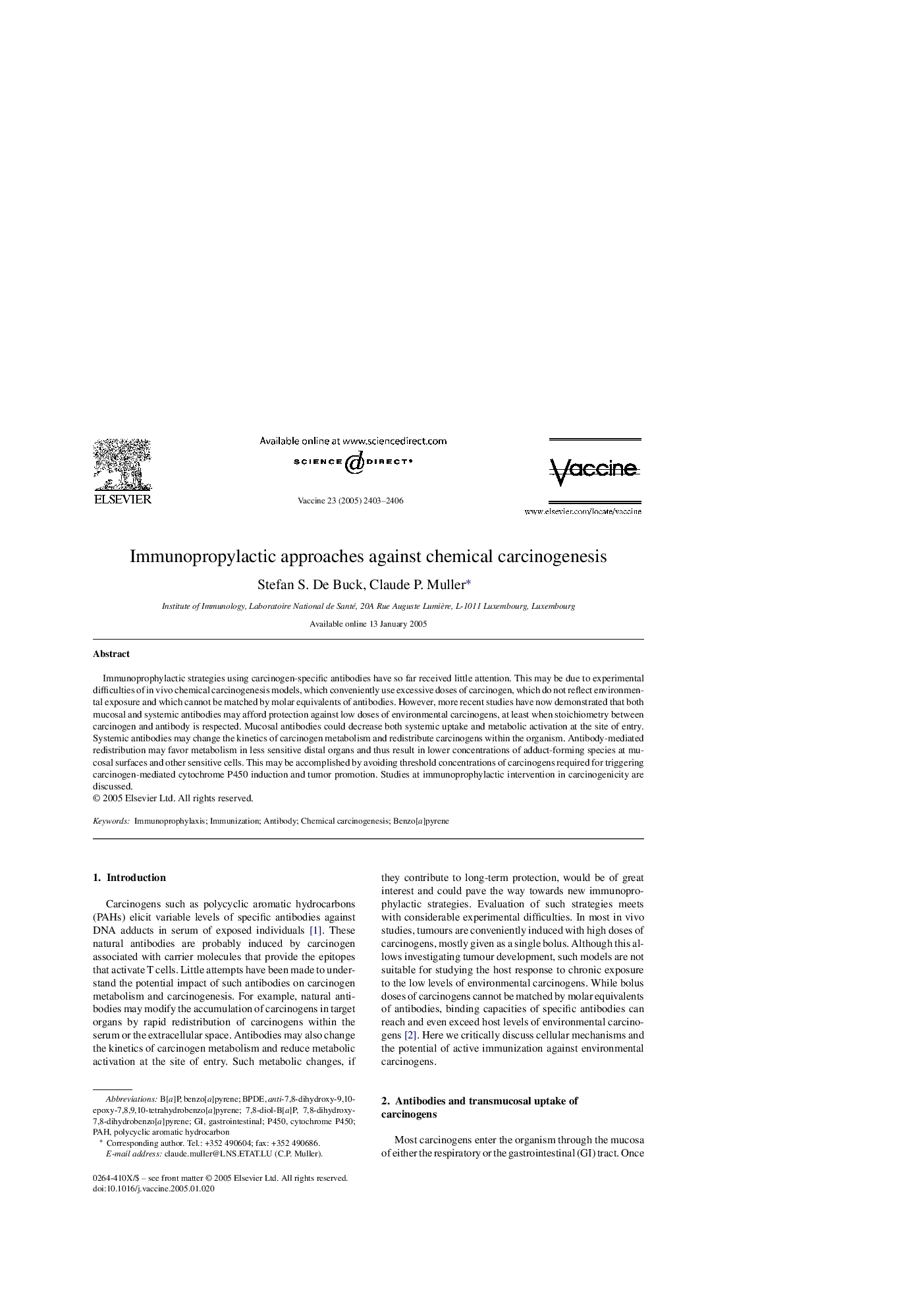| Article ID | Journal | Published Year | Pages | File Type |
|---|---|---|---|---|
| 2411080 | Vaccine | 2005 | 4 Pages |
Immunoprophylactic strategies using carcinogen-specific antibodies have so far received little attention. This may be due to experimental difficulties of in vivo chemical carcinogenesis models, which conveniently use excessive doses of carcinogen, which do not reflect environmental exposure and which cannot be matched by molar equivalents of antibodies. However, more recent studies have now demonstrated that both mucosal and systemic antibodies may afford protection against low doses of environmental carcinogens, at least when stoichiometry between carcinogen and antibody is respected. Mucosal antibodies could decrease both systemic uptake and metabolic activation at the site of entry. Systemic antibodies may change the kinetics of carcinogen metabolism and redistribute carcinogens within the organism. Antibody-mediated redistribution may favor metabolism in less sensitive distal organs and thus result in lower concentrations of adduct-forming species at mucosal surfaces and other sensitive cells. This may be accomplished by avoiding threshold concentrations of carcinogens required for triggering carcinogen-mediated cytochrome P450 induction and tumor promotion. Studies at immunoprophylactic intervention in carcinogenicity are discussed.
